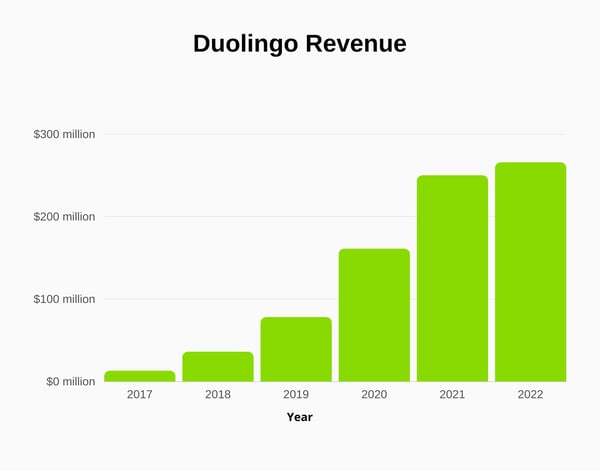Communication moves us all. The words we use and hear have the power to affect the actions we take, the decisions we make, and the way we perceive the world around us. Language shapes our thoughts, influences our emotions, and ultimately plays a pivotal role in shaping our identities and interactions with others. This is why communication is integral to branding and marketing.
The marketing industry and brands alike are no strangers to the ever-changing market. Language undergoes continuous evolution, drawing from diverse sources, such as specific locations, subcultures, communities, and different generations alike.
For decades, marketers have been incorporating terms and slang into their advertising strategies as a means to better connect with their target audiences. Millennials got their first taste of it at the start of the internet and introduction to social platforms. The difference now? Generation Z is just perfecting it.
Defining a Generation
As Gen Z (born between 1997-2012) continues to mature, marketers should pay attention. With the eldest members already well into their late twenties, this demographic represents a substantial portion of the global population and holds a large influence in the consumer market, over $450 billion to be exact, and still growing.
Trends come and go and unlike the generations before them, Gen Z is very selective about the content they choose to consume. Raised in the digital era, Gen Zers are characterized by their tech-savviness, entrepreneurial mindset, and their emphasis on authenticity and personalization. They prioritize experiences over material possessions and prefer organizations that align with their everyday values.
To effectively engage with Gen Z consumers, brands must take into consideration their digital upbringing and tailor their marketing strategies accordingly.
Why Should You Care?
We already know that communication is essential in any marketing strategy or campaign. With Gen Z, more than anything else they want to be understood by the brands they are representing or choosing to work with. By integrating Gen-Z slang into your marketing strategy, you are making your brand more approachable and helping to foster connections that go beyond traditional marketing methods.
This marketing approach gets them directly involved and actively engaged with your brand or business, encouraging them to share content with their peers, test out the brand for themselves, and advocate for future use. When Gen-Z consumers feel that a brand comprehends and communicates in their language, they are more likely to build trust in that brand.
The Proof
One example of this can be seen through the marketing tactics employed by Duolingo, a widely-used language-learning app launched in 2012. During the height of the pandemic (2020), TikTok became the #1 globally trending app for download, with a majority of the users being Gen Z.
Duolingo used the platform to its advantage by aligning itself with the latest internet culture shift to better relate to its targeted demographic. This approach not only underscores the brand's adaptability and appeal to its users but also emphasizes that learning a new language can be an enjoyable and thrilling journey. By doing so, Duolingo more than tripled its 2019 revenue in the coming years afterward.

Using social media, Duolingo not only tapped into prevailing trends and pop culture references to connect with its audience but also incorporated the everyday phrases and language of today's social media generation.
@duolingo Pookie, tell me I'm your type😔 #anitamaxwynn #duolingo ♬ original sound - Arcticz X Trikzz
@duolingo Pookie! Plz tell me you’re ok😔 #duolingo #mypookie
♬ original sound - 🤖
Terms to Know
As marketers navigate the digital landscape, adaptation is essential. Check out some of these common terms & phrases that Gen Zers are currently using and brands are embracing across their digital platforms:
- Pookie: A term of endearment or a pet name for someone, often used between friends or romantic partners.
- Alpha: A person who exudes confidence and dominance, often a leader or someone who is highly respected in a particular social circle.
- Screaming, crying, throwing up: An exaggerated expression used to emphasize extreme emotions or reactions to something.
- Delulu/Delusional: Someone who is out of touch with reality or holds unrealistic beliefs or expectations.
- Silly little____: A dismissive or condescending term used to describe someone or something seen as trivial or insignificant.
- Toxic: Behavior or traits that are harmful, negative, or detrimental to oneself or others.
- Rizz: This term could refer to "risks" or "risky" actions, often used to describe bold or daring behavior.
- Coded/Core: Possibly related to certain subcultures or groups with specific codes of conduct or core values.
- Let Them Cook: Allow someone to do something on their own or handle a situation without interference.
- Eats/Ate: To do something exceptionally well or skillfully.
- It’s Giving: Used to describe something that is currently displaying a particular quality or vibe.
- Mother/ Queen: Terms of endearment or admiration for someone who is highly respected or admired, often for their style or attitude.
- Slay: To perform exceptionally well, often used in the context of fashion or personal presentation.
- Serve: To impress or stun others with one's appearance or actions.
- In my _____ era: Referring to a period of time in one's life associated with a particular trend, style, or phase.
- IYKYK: Abbreviation for "If you know, you know," implying shared knowledge or understanding among a particular group.
- Sheesh: An expression used to convey disbelief, annoyance, or admiration.
- Womp womp: An onomatopoeic expression used to mock or dismiss someone's misfortune or disappointment.
- POV: Abbreviation for "Point of View," often used in social media contexts to indicate a video or image from a specific perspective.
- Coquette: A flirtatious or seductive woman.
- Purr: To express contentment or satisfaction, often in response to something enjoyable or pleasing.
- Low Key/High Key: Indicating something that is either discreet or obvious, respectively.
- Cringe: To feel embarrassed or uncomfortable, often in response to something awkward or embarrassing.
- Vibes: The general atmosphere or feeling of a situation or environment.
- Deadass: A slang term meaning "seriously" or "for real."
- It’s the _____ for me: A phrase used to emphasize a particular aspect or characteristic of something or someone.
- Somebody cooked here: A phrase indicating that someone performed exceptionally well or outperformed others in a particular situation.
- Cap: To lie or exaggerate; falsehood.
- Girly Pop: Possibly referring to a genre of music or cultural phenomenon associated with femininity or girlhood.
- GOAT: Abbreviation for "Greatest of All Time," used to refer to someone or something considered the best in their field or category.
- Literal/Literally: Used to emphasize that something is actually true or accurate, often overused in casual speech.
- If you even care: A phrase used sarcastically to imply that someone might not actually care about a certain topic.
- Green flag/Red flag: Signs indicating positive or negative aspects of a person or situation, respectively.
- Spin the block: To return to a previous location or situation, often with the intention of confrontation or retaliation.
- Girl/boy math: A joking reference to using simplistic logic or reasoning, typically associated with stereotypical gender roles.
- Me when ____: A phrase used to express relatability or shared experiences, often used in meme or social media contexts.
- Ick: An expression of disgust or distaste.
- Fr fr: An abbreviation for "for real, for real," indicating sincerity or truthfulness.
Here’s Some More Examples If You Don’t Believe Me
While these words and phrases are commonly found on social media platforms, brands are increasingly incorporating them into their websites, email marketing, and text campaigns. E-commerce giants like FashionNova, Crocs, and Coach are notable examples of this trend.
A couple more instances of brands utilizing Gen Z slang in their marketing strategies include:
@espn Sandy was cooking on the #Nickelodeon broadcast last night 🔥😂 (📺: CBS) #superbowl #spongebob #spongebobsquarepants #nfl
♬ original sound - ESPN
@netflix no rizz just big blue eyes and bad timing #OneDay
♬ original sound - Netflix - Netflix
Embracing the Inevitable
The bottom line? slang is transient; words and phrases will rise and fall in popularity. More than a decade ago, terms like 'Bae,' 'On fleek,' and 'YOLO' were part of the social norm and were even embraced by brands and marketers. However, nowadays, those terms are incredibly dated.
Understanding your target audience enables effective marketing strategies. As Gen Z expands its influence, marketers strive to remain current and connected to their world. Proficiency in the latest slang can enhance your content, making it both relatable and playful.
It is time for brands to become more open to embracing these linguistic shifts and adjust to the evolving landscape of communication in marketing. Use it to your advantage rather than shying away from it.
Connect with us and discover how Snyder Group Inc. can enhance and expand your organization's digital presence through strategic marketing initiatives like these.
